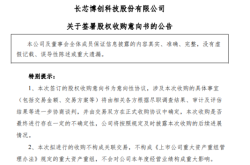Switzerland: The Prosperity and Innovation Path of a Permanent Neutral Country | National Economy Series
![]() 04/23 2024
04/23 2024
![]() 994
994
Introduction: "National Economy" is an important article column of "Lishi Business Review," aiming to interpret the latest developments of global core countries from the perspective of economic and cultural integration, in order to summarize the underlying laws behind the economic changes in different countries. This issue brings readers the global famous permanent neutral country, Switzerland.
Wang Jian | Author | Lishi Business Review | Produced
In today's constantly changing global political and economic landscape, Switzerland, with its firm neutral stance and outstanding economic achievements, presents a national image that combines peace, prosperity, and innovation, making it an idyllic "paradise on earth" that everyone aspires to.
In 2023, Switzerland ranked third globally with a per capita GDP of 93,500 USD, making it a "small but wealthy country."
As an inland country with an area of just over 40,000 square kilometers, lacking natural resources, and surrounded by four powerful nations, how did Switzerland develop into a developed country in the world?
To answer this question, let's start with why Switzerland is a permanent neutral country.
1
The Origin and Adherence to the Policy of Permanent Neutrality
Geographically, Switzerland is surrounded by powerful neighbors: Germany to the north, France to the west, Austria to the east, and Italy to the south.
These four countries were once great powers in Europe, with a history of aggression towards other countries, yet none of them ever laid a hand on Switzerland.
Why is that?
The most important reason is that Switzerland is not easy to provoke. Despite its small size, it has a famous history as a "fighting nation."
Human activities in the Swiss region date back to ancient times. Around the 1st century BC, a Celtic tribe called the Helvetii inhabited this area.
Due to the invasion of the Germanic tribes, they once migrated westward to Gaul (today's France). However, they were soon defeated by the Roman emperor Caesar and forced to migrate back to the territory of present-day Switzerland.
Since then, Switzerland was first ruled by the Roman Empire, followed by the Frankish Empire, until around 1000 AD, it was annexed by the Holy Roman Empire.
Fortunately, Switzerland was relatively remote, and the Holy Roman Empire was unable to exert its full authority. Gradually, the region evolved into a situation where several aristocratic families ruled over different cantons (states).
To maintain its rule, the Holy Roman Empire granted these cantons the status of "imperial immediacy."
This gave the Holy Roman Empire several "loyal followers" in Switzerland, allowing it to exercise effective governance. These cantons also gained greater independence, able to raise troops and collect taxes on their own.
After the 13th century, the Holy Roman Empire gradually declined, and the Swiss cantons that had declared loyalty to it felt a sense of crisis.
Because at that time, the economies of these Swiss cantons relied on trade routes in the Alpine region. In the early days, with the protection of the Holy Roman Empire, surrounding countries dared not take action, but now they were all eyeing Switzerland, ready to replace it.
To resist common enemies, in 1291, the three cantons of Uri, Schwyz, and Unterwalden in central Switzerland secretly allied and formed what later became known as the "Old Swiss Confederacy."
In 1353, the cantons of Glarus, Zug, and Lucerne, as well as the city-states of Zurich and Bern, also joined this confederacy. With these Swiss cantons forming an alliance, the overall military strength of the Old Swiss Confederacy increased, winning a series of victories in wars.
From 1386 to 1388, the army of the Old Swiss Confederacy defeated the Austrian army controlled by the Habsburg dynasty twice, further expanding its territory.
The Old Swiss Confederacy maintained this ferocity for more than a hundred years, even defeating the powerful Burgundian Duchy, which occupied most of today's eastern France and the Benelux countries, in 1477.
The Burgundian Duchy was subsequently weakened and soon annexed by France, causing a huge shock in Europe.
After defeating neighboring countries, in 1499, the Old Swiss Confederacy defeated the Holy Roman Empire army led by Emperor Maximilian I in a war against the Habsburg dynasty, effectively gaining independence from the Holy Roman Empire.
The Old Swiss Confederacy was able to achieve such strength, mainly due to its mercenary groups.
European mercenaries have a long history dating back to ancient Greece. Many Europeans without nationality concepts would fight for whoever paid them more.
The Old Swiss Confederacy, wealthy due to trade, attracted numerous mercenaries to join voluntarily. These professional soldiers, with their combat prowess and war experience, quickly became the main force in Swiss battles, earning Switzerland a place in Europe.
However, no matter how powerful the Swiss mercenaries were, Switzerland was still a small country compared to other European powers, far from dominating Europe.
In 1499, Emperor Maximilian I of the Holy Roman Empire organized the "Swabian League," primarily consisting of southern German princes, in an attempt to reincorporate Switzerland into its rule, but the invasion ultimately failed, and the Holy Roman Empire had to recognize Switzerland's independence. Two years later, Basel, Schaffhausen, and Appenzell joined the Swiss confederation.
In 1515, Switzerland was involved in the Italian Wars, standing on the side of Italy against France, but suffered a devastating defeat at the Battle of Marignano, leading to intensifying internal conflicts within the Old Swiss Confederacy.
From 1529, due to disagreements among different ethnic groups over the European Reformation, wars broke out between Catholic and Protestant groups in the cantons of the Old Swiss Confederacy, continuing intermittently for more than a hundred years until the emergence of a military strongman.
2
Stable Political System and Environment Brought About by the Policy of Permanent Neutrality
In 1798, Napoleon of France invaded and quickly occupied Switzerland.
Afterwards, Napoleon thoroughly reformed the Swiss political system, establishing a central government and剥夺了大量州政府的权力, but met with strong resistance from the Swiss.
To completely subdue the Swiss, Napoleon reformed the Swiss political system in 1803, granting Switzerland autonomy and establishing a federation of 19 cantons.
After Napoleon's abdication in 1814, Switzerland regained its independence at the subsequent Vienna Congress, with the cantons of Valais, Neuchâtel, and Geneva joining as new members, thus expanding Swiss territory to its current borders.
In the following decades, although Switzerland was still internally turbulent, it was a relatively "oasis of peace and prosperity" in a war-torn Europe, mainly because the Swiss people were tired of continuous wars and recognized the importance of maintaining Swiss unity.
Switzerland was also in a tense situation, with the Austro-Hungarian Empire to the east, the German states to the north, France, the dominant power in Western Europe, to the west, and the endless Alpine mountains to the south, with Italy looming behind.
If any of these countries were to go to war,








